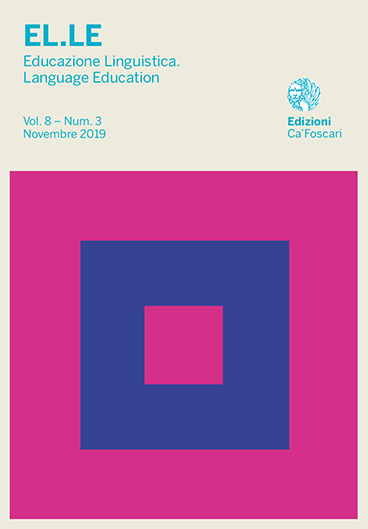
- search 493 views
- file_download 90 download
- keyboard_capslock metadata
-
mark_email_readIscriviti alla newsletter
Mediation and Task-Based Language Learning (TBLL)
How Autonomous Learning Enhances Mediation Competencies
abstract
The present qualitative case study analyses the development of mediation strategies in English TBLL classes. Particular relevance is given to mediation strategies enhanced by cooperative learning and social interaction in the classroom: among these the ability to manage discourse, to work cooperatively and to help structure discourse and turn-taking in order to grant active participation of all members are highlighted. TBLL promotes autonomous learning and problem solving processes, as students interact and negotiate meanings as well as contents to complete tasks and produce an outcome. It is in this pedagogical context that mediation strategies are activated on different levels and support learners in the attempt to handle challenging linguistic and content-related situations. The study was carried out in a third class of a secondary school and 22 students between 15 and 16 years took part in the data collection. English TBLL modules were inserted in curricular English classes and audio-and video registrations were made during the lessons. A discourse analytical approach was applied for the analysis of the audio and video registration, in particular of the negotiating process, and semi-structured interviews were carried out with 5 students at the end of the project.
Keywords: Scaffolding • Learner autonomy • Cooperative learning • Mediation • Task-based langugage learning



